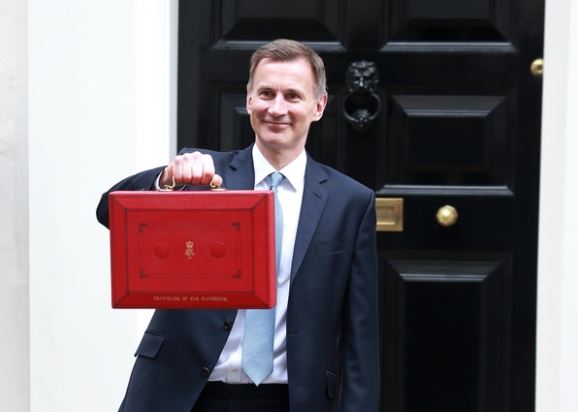Autumn Statement 2023 - A Summary

An Autumn Statement, and the following Spring budget before a General Election, are typically used as springboards for Governments seeking a new mandate – believe it or not, an election is coming in 2024. Whether you think this Autumn Statement was a launchpad, or a proverbial last role of the dice, likely depends on if you share the Chancellor’s view that Britain’s economy has turned the corner.
That will seem a hefty statement for many given recent cost of living struggles, and the ongoing political and economic events which anyone who turns on the news or glances at social media will be all too familiar with. Nevertheless, Jeremy Hunt has looked to develop his economic approach to adjust for the recent fall in inflation, and take the British economy from recovery to a period of growth and prosperity.
The Cost of Living
- The National Living Wage has been increased by 9.8% to £11.44 from April 2024, which could according to the Chancellor, equate to an £1,800 increase for those in receipt of it.
- Employee National Insurance Contributions have been cut from 12% to 10%, affecting 27 million people, and saving an earner on £35,000 roughly £450 per year from 6 January 2024.
- The self-employed also received a boost, with Class 2 National Insurance abolished entirely, and Class 4 reduced from 9% to 8% (for earnings between £12,570 and £50,270).
- Universal Credit has been increased by 6.7%, along with similar state benefits, whilst the Government re-committed to the Triple-lock in the state pension and provided an uplift of 8.5%.
- Alcohol Duty has been frozen until August 2024, a welcome announcement for the hospitality sector and also most of us ahead of Christmas and New Year celebrations, but unsurprisingly given the Government’s smoke-free generation aim, tobacco duty has been increased.
Many of these measures appear positive, and many will welcome keeping more of their hard-earned income. However, there will be knock on effects. Businesses have just over four months to budget for the largest increase in the National Living Wage since it was first introduced in 2016, and will no doubt have also taken note that inflation is expected to continue falling towards 2.8% at the end of next year, playing heavily into any pay reviews which are forthcoming in the next 12 months.
There was no uplift in any of the personal allowances for taxes. Whilst many have seen their take-home pay increase recently (wages outstripped inflation in September), without corresponding personal allowance rises, earners may move into higher tax brackets or indeed start paying tax, diluting pay increases – Labour’s Rachel Reeves quickly pounced on such a fact in her response to the Chancellor.
There is also likely to be notable fallout that whilst many see an immediate increase to take-home pay, National Insurance contributions usually fund the NHS – there may be concern of a further funding gap, exacerbating well-publicised disagreements around funding for both the service itself and its staff.
Investment
- Full expensing has been made permanent – meaning that for every £1 a business invests in IT, machinery and equipment, they can claim back 25p in Corporation Tax. The Chancellor hopes this will drive investment for manufacturing businesses in particular and boost productivity.
- Up to £4.5bn is also being made available to manufacturing sectors between 2025 and 2030.
- For Business Rates, there was an extension of the 75% discount provided to retail, leisure and hospitality businesses, and a freeze to the small business multiplier for a further year.
- £500m has been provided too for AI Investment Centres, as the Government continues its push to make the UK an “AI powerhouse”.
- £50m is to be made available for apprenticeships in engineering and other key sectors.
- Financial incentives and tax breaks for investment zones and free ports have been extended from 5 years to 10 years, with new zones to be created in West Yorkshire, the West Midlands, the East Midlands, Greater Manchester and Wales.
There is clearly a big drive in getting the UK to be a more productive economy, something which has for a long time been levied by the Government’s critics without any fundamental answer being provided in response.
Support for the hospitality sector, small businesses and apprenticeships, and investment into innovating sectors such AI will no doubt be welcomed. However, pledges have been made before, and it remains to be seen if these measures, and the sums committed buck the recent failure to address productivity.
Welfare, Retirement and Housing
- Proposals requiring an employer to pay into an employee’s existing pension pot, in an attempt to cut back individuals having multiple pots, are to be considered.
- If having sought work for 18 months a claimant has not found employment, they will be required to take part in mandatory work placements to increase skills and their employability, or risk losing receipt of their benefits – this was one of the more controversial statements and is likely to be heavily debated between welfare rights groups and those who support a reduced welfare state extensively.
- The Local Housing Allowance Rate will be increased to the 30th percentile of local market rates, giving 1.6 million households an average of £800 of support next year, in a welcome boost for those on lower incomes.
What was not in the Statement
- Many have been in receipt of cost of living payments, providing a lifeline for paying bills, but there has been no further commitment to these continuing – they are due to end in the Spring.
- There were no changes to Inheritance Tax, which had been widely touted - some of the criticism that this would not directly boost the economy may have been heeded by the Government.
- House prices are due to fall in 2024, and no comments were made around Stamp Duty, or other costs associated with the housing market – what impact this has remains to be seen.
- The energy price cap is due to change on 1 January, and despite a recent fall, it is now expected to rise again – no policies were mentioned for assisting consumers with additional costs.
What does this mean for you personally, and your business
Inflation is falling, and is expected to reach 2.8% by the end of 2024, but is still high at 4.6%. When I wrote my Budget article in March, inflation was expected to be 2.9% by the end of this year. The longer inflation remains above the 2% target of the Bank of England, the longer we will all be seeing higher prices, and an offset to some of the benefits received from the cuts to National Insurance Contributions.
Interest rates also remain high – the Bank of England Base Rate is 5.25%, making borrowing more expensive, and potentially putting off some business from investing despite changes to full expensing and other investment incentives. Mortgages also remain more expensive for individuals, having risen by £220 a month on average, with half a million more people to potentially see such a rise next year.
Other tax rises and fiscal measures also cannot be ruled out in the future – the obvious one being Council Tax, which has often seen rises in April each year, and it may be that the funding of services simply moves from National Insurance to other income streams.
Summary
Whilst many will feel the economy has not “turned a corner”, we have noticed talking to clients and contacts alike that especially locally, that there is optimism that opportunity can be found even in the current climate. The Chancellor will hope that his measures turn these shoots into full fledged growth. However, he has a delicate balancing act, trying to provide us with more funds in our pockets, whilst not driving inflation up as a result of any increased spending.
Whether his measures have time to work is also another question – 12 months is a long time in politics, but not necessarily enough for the Government’s “long term decisions” to take hold ahead of the election. I inevitably will be back with another one of these updates next Autumn – whether Rishi and Jeremy will be there to deliver the statement itself, lies in the hands of you and me in 2024.
If you have any queries on how these changes might apply to you, or need advice in what are undoubtedly testing times, Leathes Prior’s Commercial Team and other departments are ready to assist. We will also be on hand throughout 2024 to assist and provide advice in what is always a tricky time for businesses, as they plan for the future in the run up to the general election.
Please contact us by email on info@leathesprior.co.uk or by calling 01603 610911. To keep up to date with the ongoing news, make sure to follow the Leathes Prior social pages (LinkedIn, Twitter, and Facebook).


